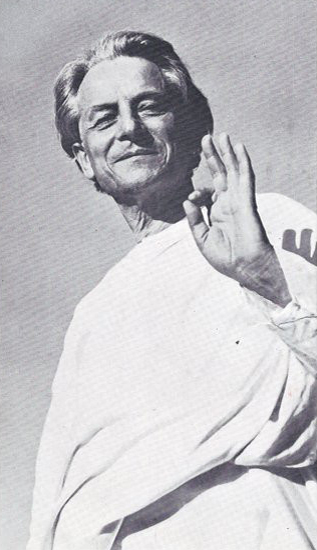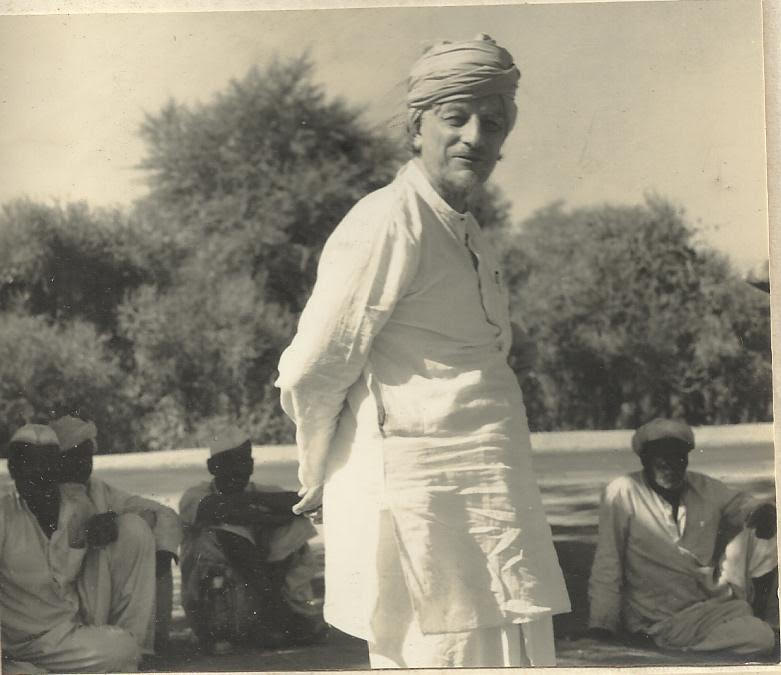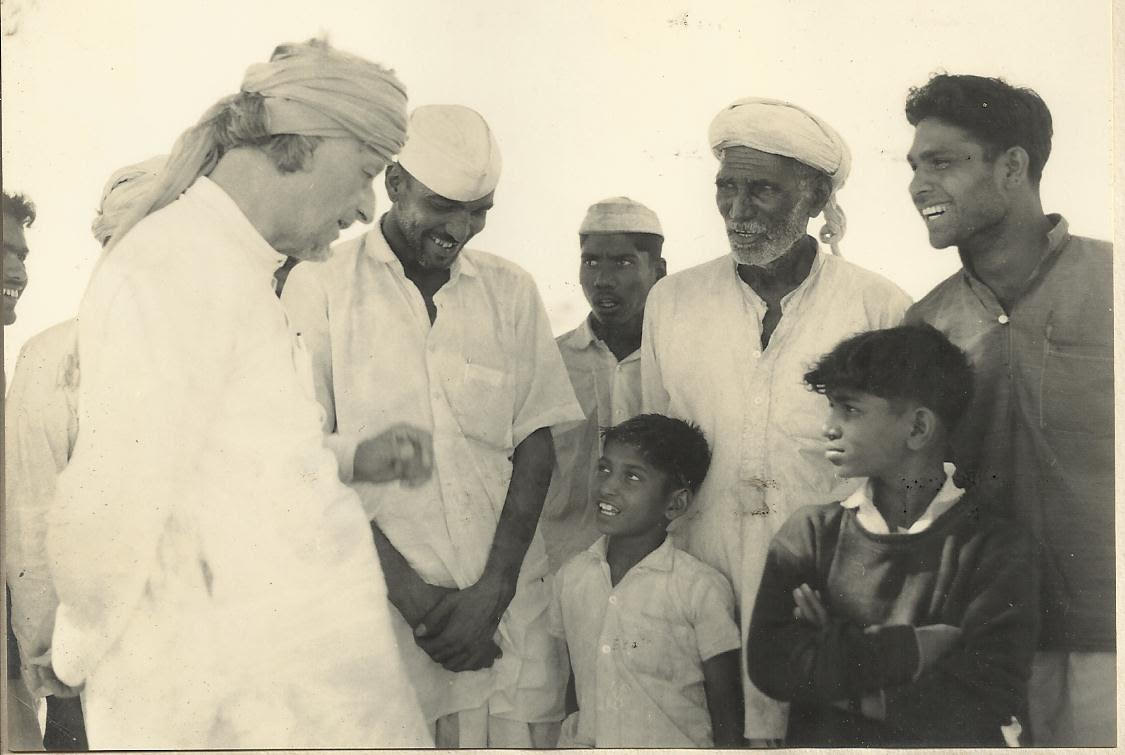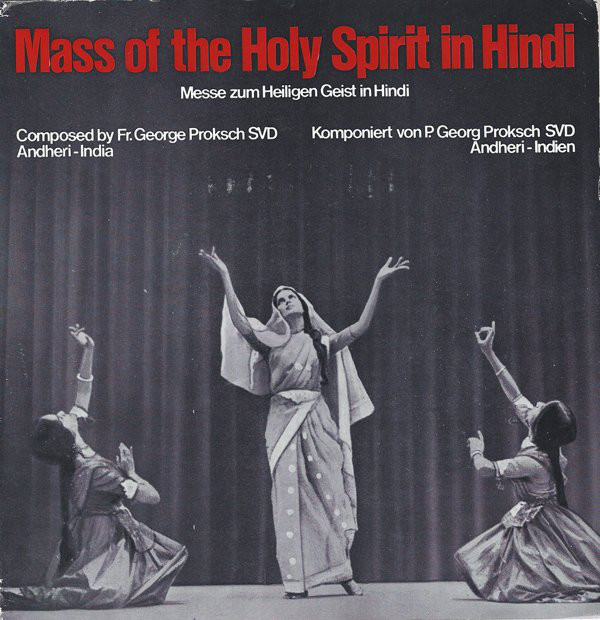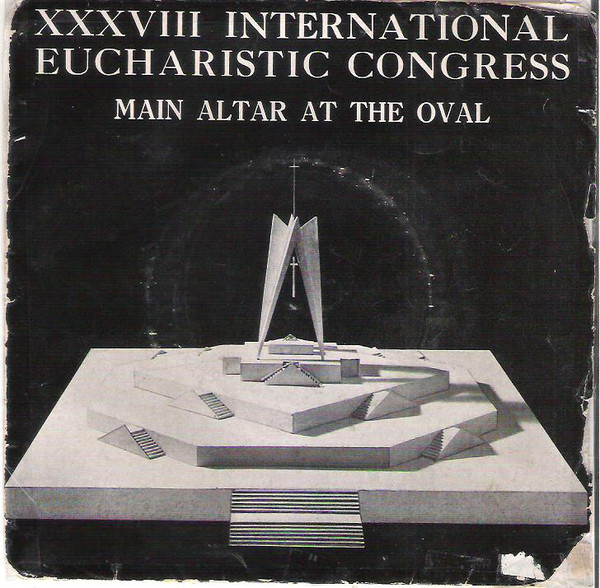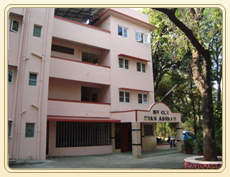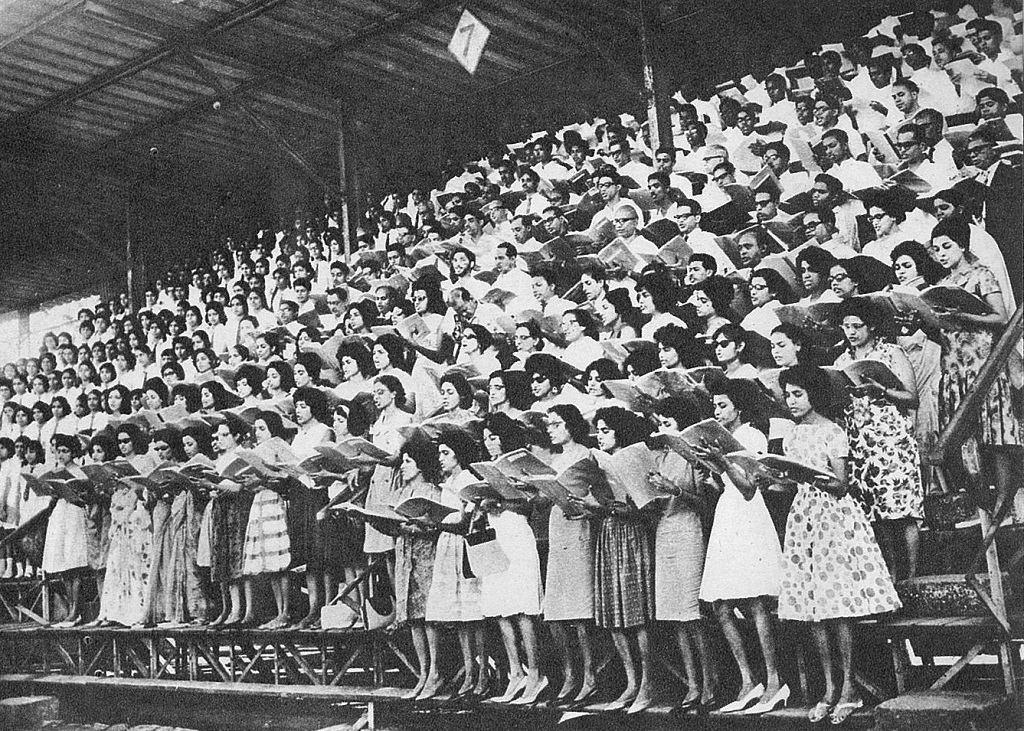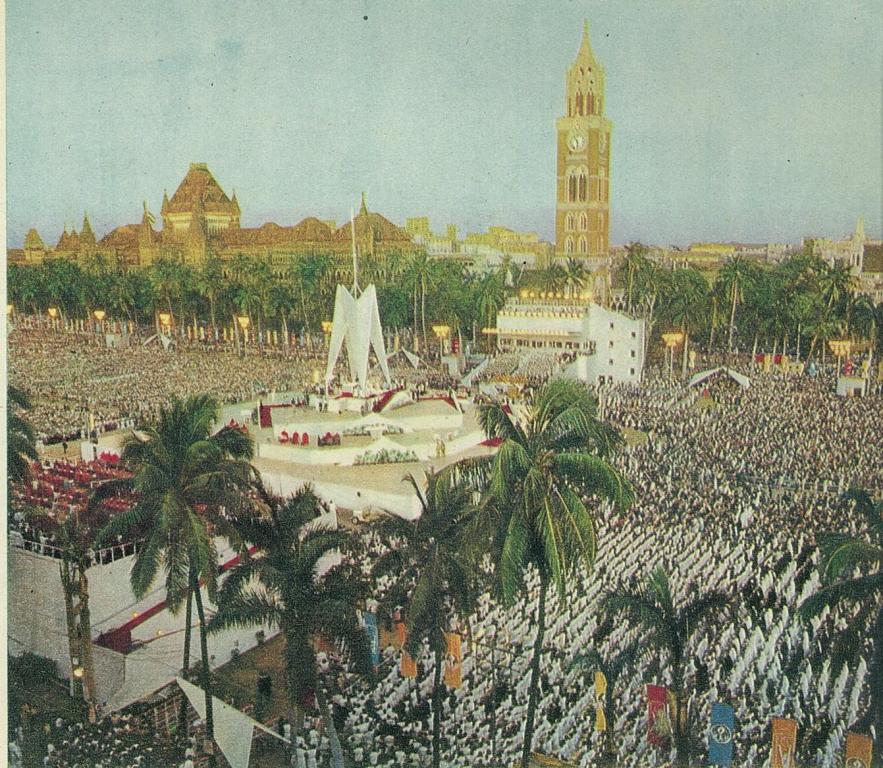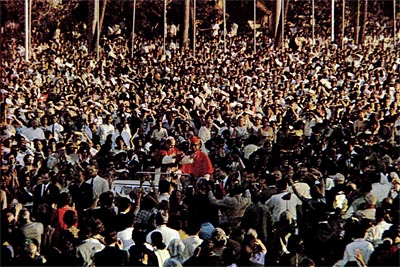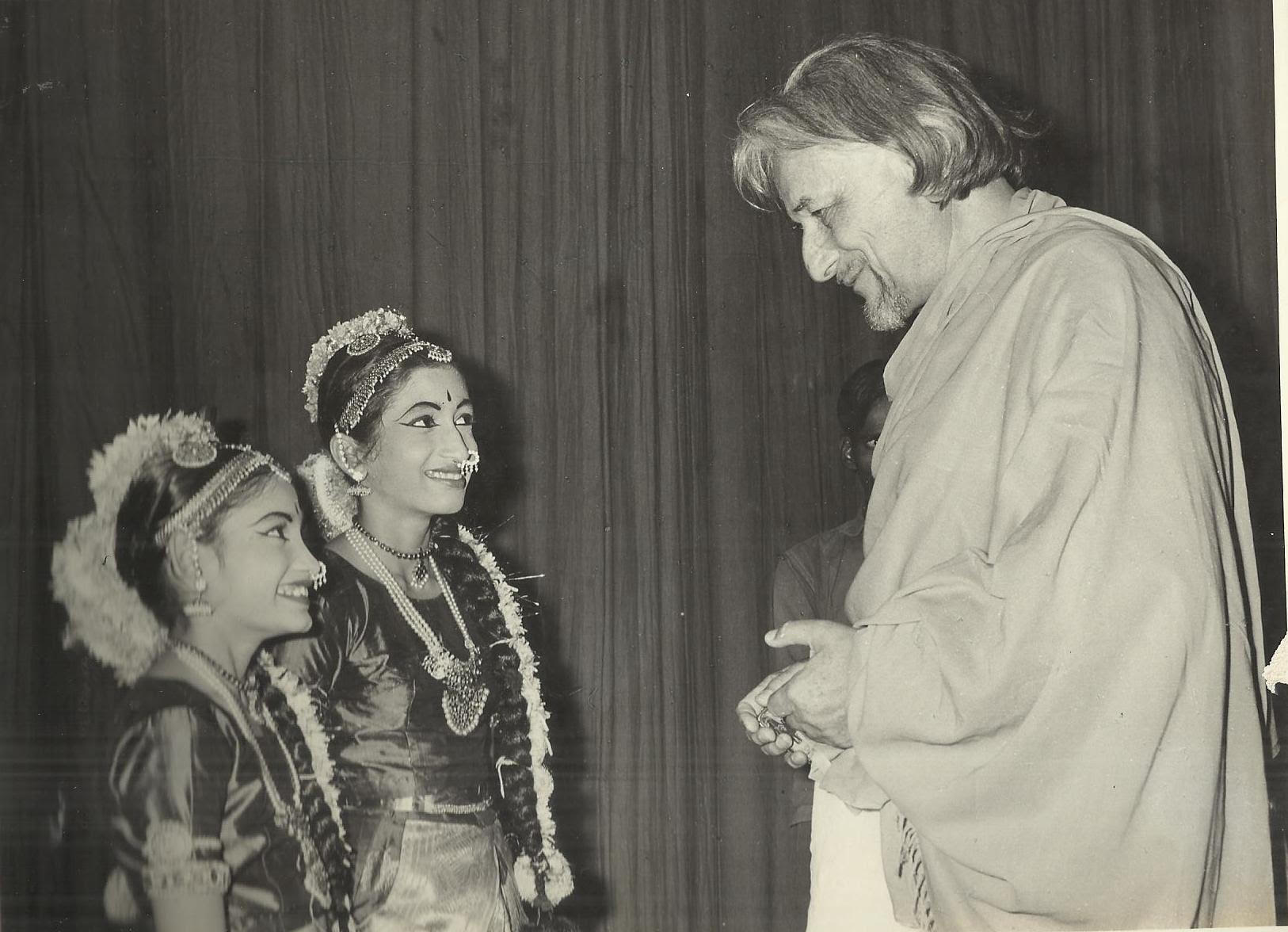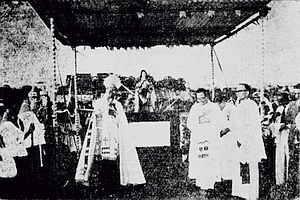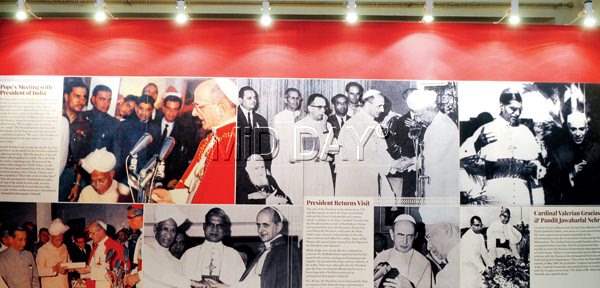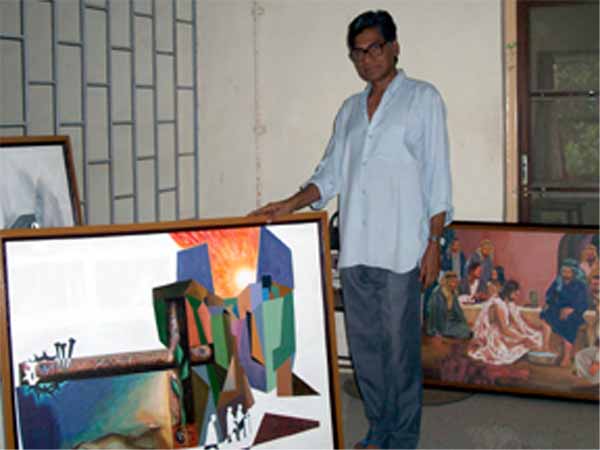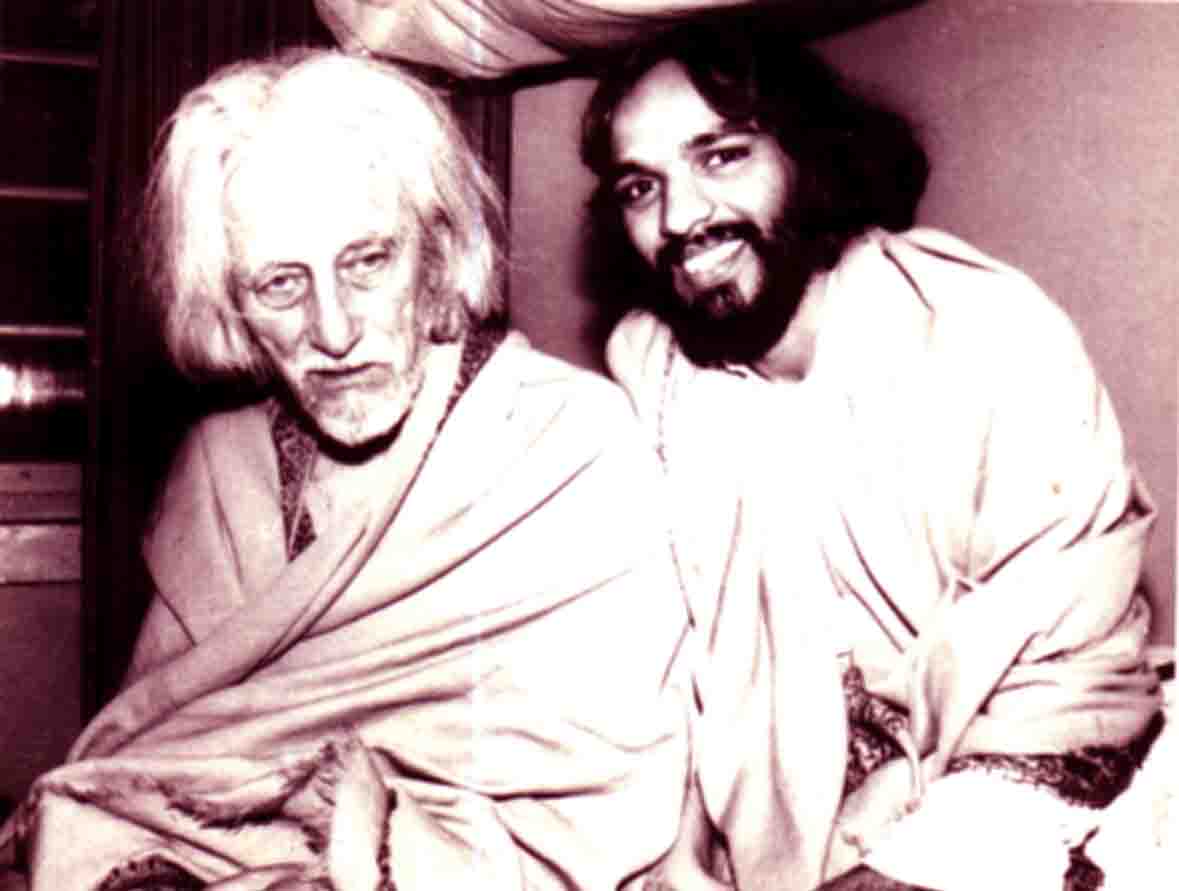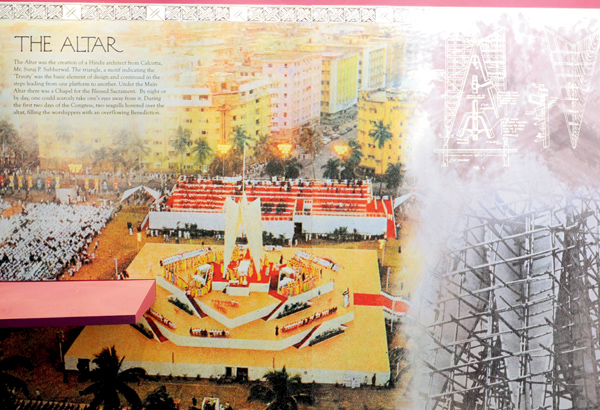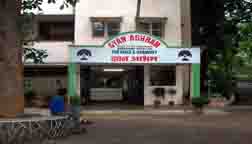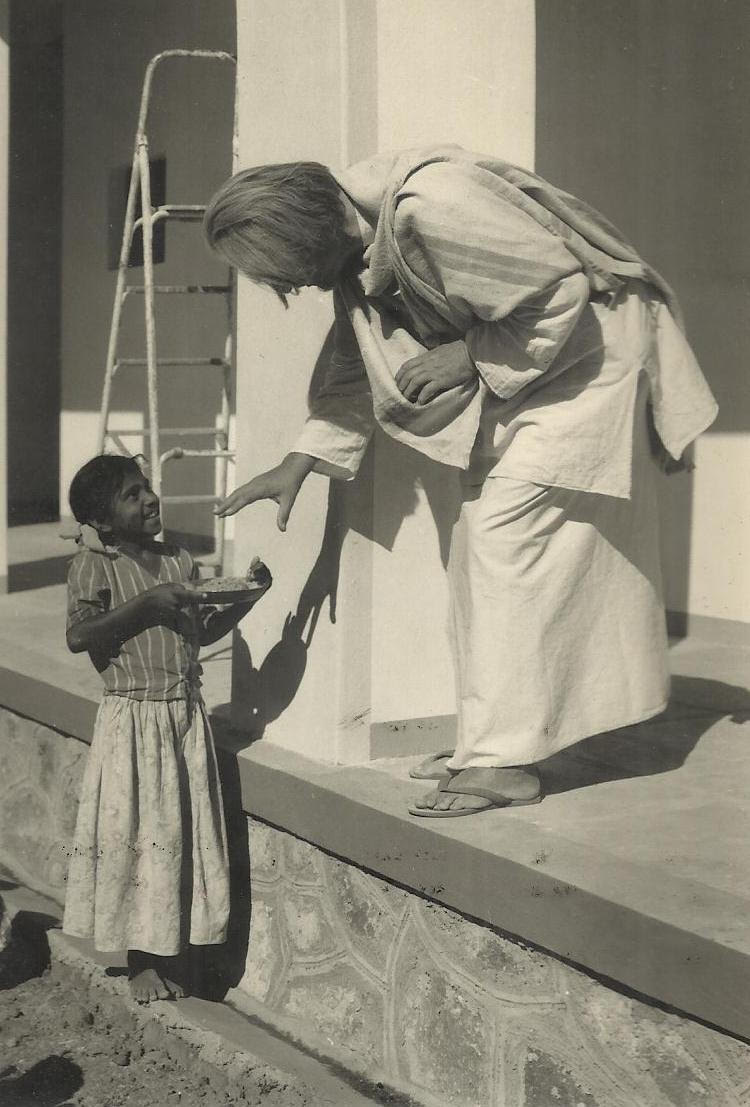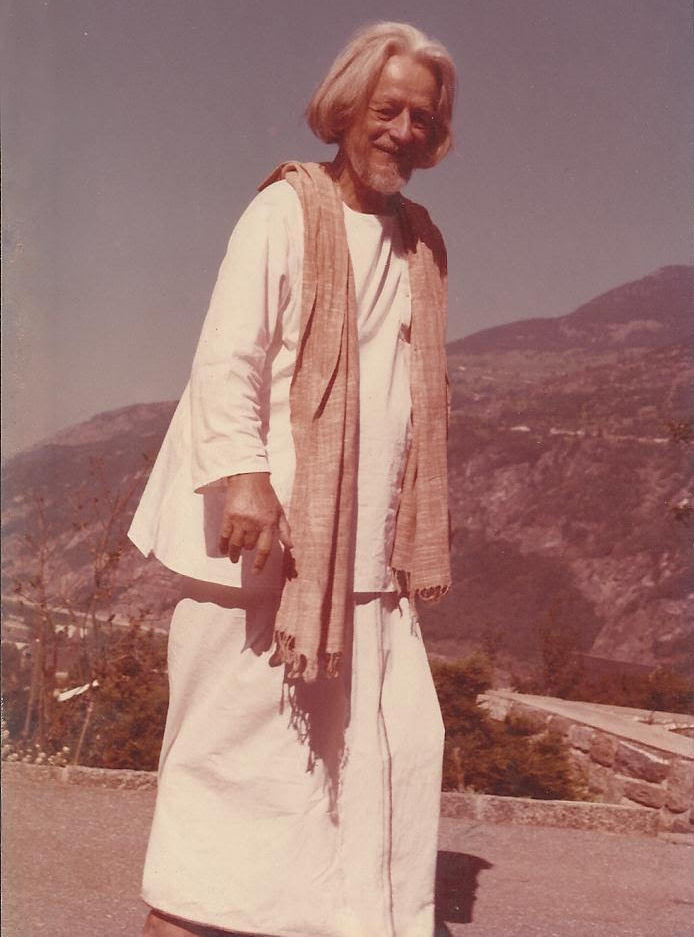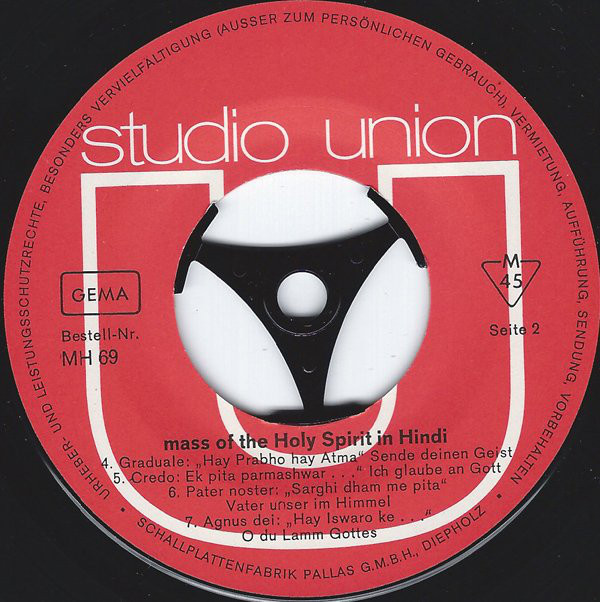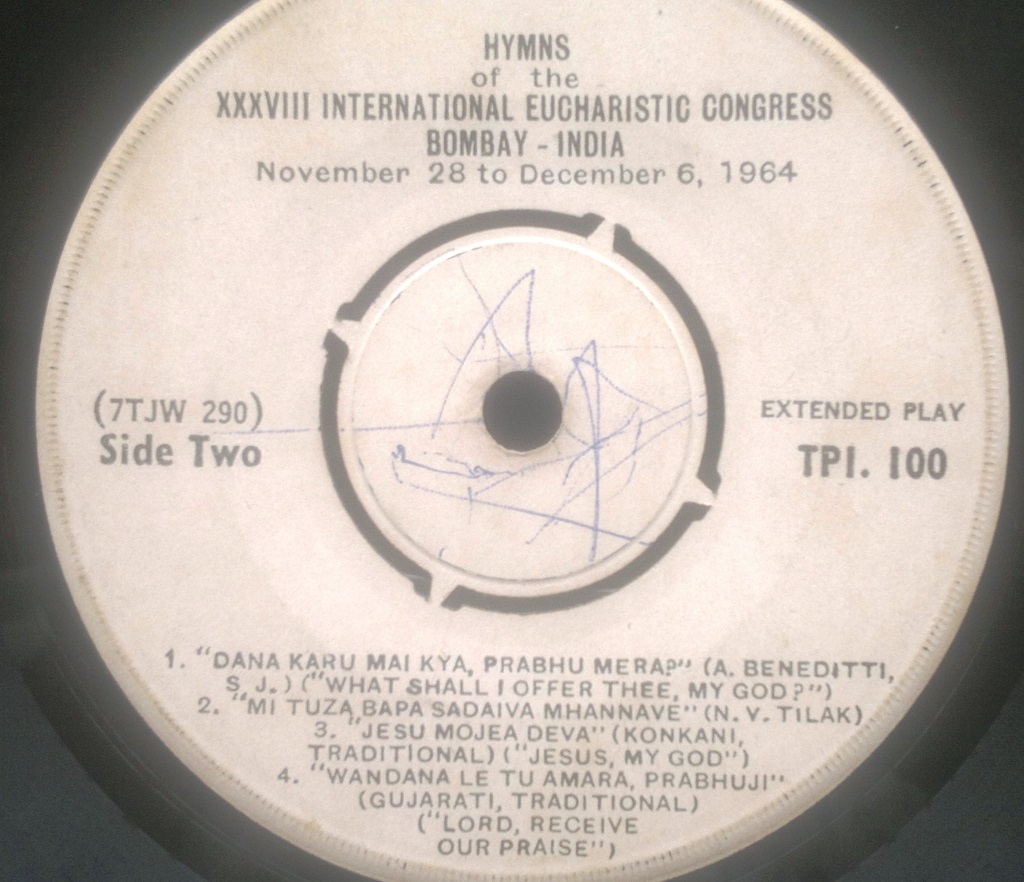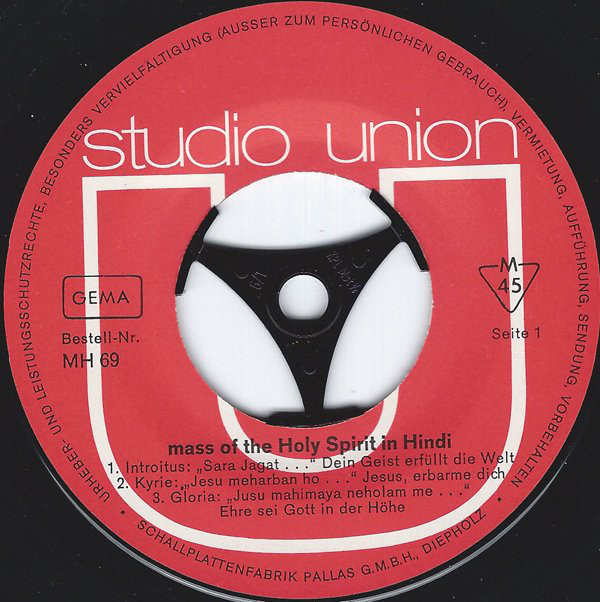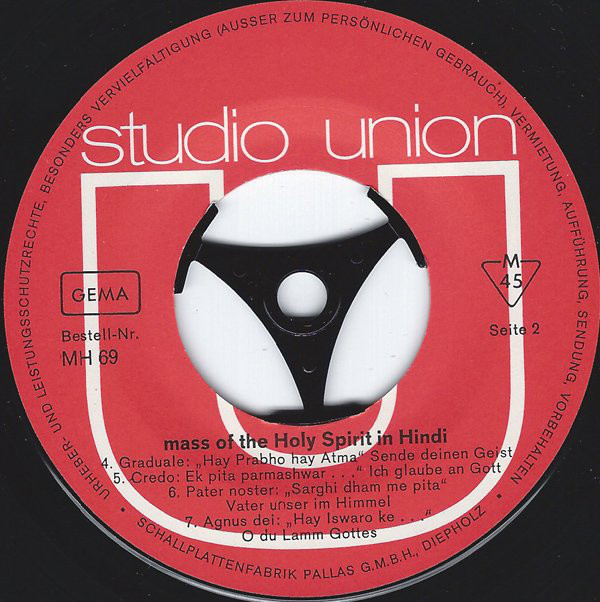Fr. George Proksch SVD
(Guru Gyan Prakash Sharman)
(1904 - 1986)
Call Number : PER-12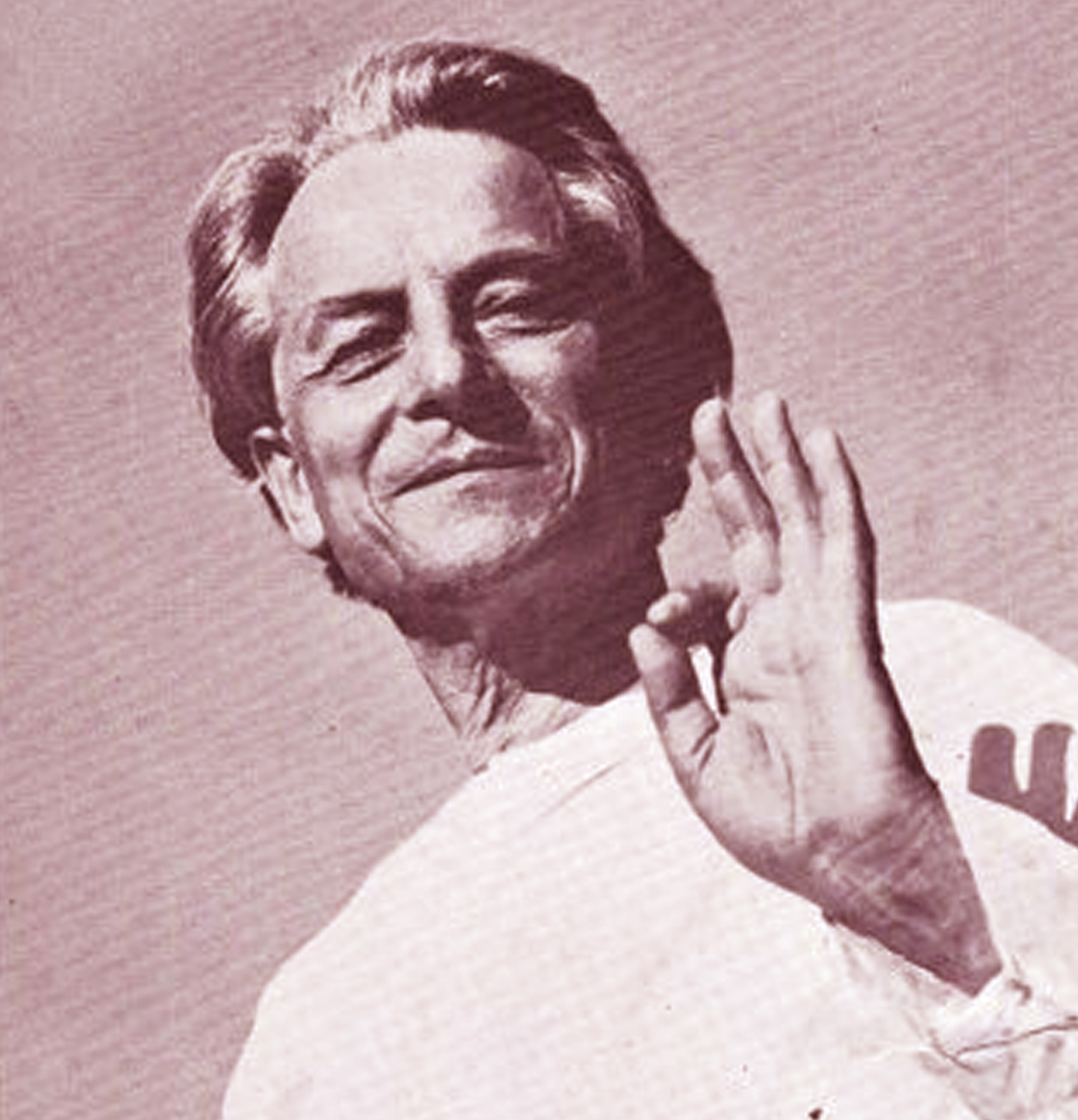
Fr. George Proksch SVD
(Guru Gyan Prakash Sharman)
(1904 - 1986)
A MAN OF VISION
Essar
Born in 1904 in Silesia, small town in Germany, young George grew in a picturesque surrounding filled with music and poetry. His father was a high ranking forest officer. George Proksch also got trained as a forest officer. This atmosphere was very conducive to develop his inborn talent in music, poetry and arts.
But his life took a different turn, as he felt the inner calling of God to dedicate his life totally to his service. So he pursued his studies in philosophy and theology,at the end of which he was ordained a priest in 1932. He was assigned to work.in India, a country totally alien to him, neither was he familiar with its rich ancient.culture nor was he aware of the multiplicity of its languages. To familiarise himself with at least one of its languages he spent one year studying Urdu at the Oriental Institute of Languages in London.
When arrived in India in 1933 together with his priestly, duties, he plunged himself in the learning of Hindi and Sanskrit. He was so impressed with the beauty of Indian culture, music, dance and art forms, that he totally identified himself with India and became a vocal exponent. of Indian music, dance and literature. His love for Hindi was so great that he once said "An Indian who does not know Hindi has no right to stay in India". He must have made this statement in his over enthusiasm to stress the importance of Hindi. But it reveals his love for Hindi. He has written over thirty books and booklets in Hindi. He wrote a few dramas,and poetry. His novel "Uskeliye" was well received. He was in personal contact with the leading literary figures of those days, including the great poet .Maithilisaran Gupta, Sumitranandan Pant and others. He wrote many plays for children which were successfully staged in several places. Among them, "Garibonka Mahal", " Andhkar me Prakash", "Chum Chanan Chumantar", "Kusum Kali", "Himani" etc. were outstanding. Perhaps his greatest literary work was "Kristayan", which he wrote while he was interned in prison during the second world war.
He was trained in western music. After his arrival in India, he mastered Hindustani Classical Music, dance and stage arts. He composed both religious and secular songs in various classical ragas. His collections of songs in "Rag Parag", Shraddanjali", "Bharat Geet", "Mangal Gaan" etc. have become very popular in the Hindi speaking areas.
In 1935, when he met Mahatma Gandhi at a Hindi Prachar meeting in Indore, he was so impressed with Gandhiji that he wrote in his diary-" Today I met a man who is able to hypnotize, because his is the image of a man of God. His life bore the seal of the ancient Ashram Ideal. He seems to move between 'tapasya' and 'swadhya' (meditation). This seems to be the secret of his successful proclamation". This impression had a lasting effect on his thought and activity, which unfolded in due course of time
At first, his field of work was Indore in Madhya Pradesh.Then he shifted to Bombay where he began lecturing in Hindi and Indian music. In 1949, he set up a registered Trust, Hindi Sanskrit Sangarn, to propogate and promote Indian culture, and provide facilities for the study of Indian languages,.literature, music and dance. At the same time, he was also actively pursuing his long standing.desire of establishing an ashram. It was not easy as this venture was not easily understood and supported by his higher superiors. He did not give up the idea. but was gradually able to get the necessary approval and he founded the ashram on a hillock on the Mahakali Road, Andheri, Bombay.
In 1956, he got the first big opportunity to present Christian themes in Indian art forms. On the occasion of Marian Congress he used folk as well as temple dances and Hindustani classical ragas to express Marian concepts. Cardinal Gracias had this to say about the impact of the Performance - 'Perhaps India will lend a readier ear to the message of Christ if it is presented in the form that has for ages been the favorite means of expressing religious thought and sentiment'. With the next cultural presentation at the 37th International Eucharistic Congress at Munich in 1960, Fr. Proksch created history when his ballet’Eucharist and Charity', employing Indian dancers and music was performed in the presence of the Holy Eucharist.
In 1964 the Eucharistic Congress held in Bombay marked a climax in the life of Fr. Proksch when 300 dancers and 1000 singers trained by him, presented 'Anant Prem'- the manifestation of God's love for mankind as seen in the Old and New Testament. Reviewing the show, 'The Sunday Standard', Bombay wrote - "It needed a remarkable German priest to introduce so forcefully Indian culture to Indian catholics. Quite a few of them were genuinely and pleasentlysurprised that Indian dance and ballet could not only be so enchanting, but so naturally adopted to Christian religious themes".
Besides these major presentations, the Ashram inmates led by Fr. Proksch have toured extensively in India and abroad. They have presented shows in Banaras, Allahabad, Lucknow, Agra, Gwalior, New Delhi, Ajmer, Udaipur and other cities bringing Christianity to mostly non-Catholics.
The themes of these presentations have been love of God, redemption, God as a shepherd and so on. The performers have portrayed these themes as well as the story of Christ who came from the Father to redeem all mankind without exception. Fr. Proksch prepared a programme called The Life of Christ', excerpts from which were broadcast by All India Radio, Bombay, during 1962 Christmas.
Fr. Proksch's achievements were recognized here and abroad. He was often invited to lectures and, presented his shows at international gatherings. When he attended the International Music Conference at Cologne in 1961, he expounded the richness of Indian music to an august audience of world renowned musicians. He said the Indian classical music was nearer to the Church music than even the music of Beethoven and Mozart. He remarked that the western music had nothing to match the aesthetic and spiritual qualities of ragas like Bhairavi and Jogia
On his 60th birthday, his friends and admirers organized a public function and presented him with a 'Abhinandan Granth'. Mrs. Vijayalaxmi Pandit, the then Governor of Maharashtra, presided over the function.
The pioneer, who made India his home, who fell in love with Indian culture, music, literature and art, breathed his last on May 30, 1986.


